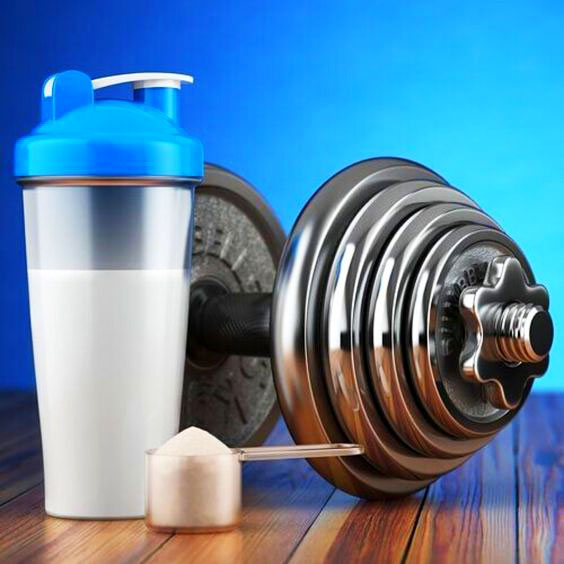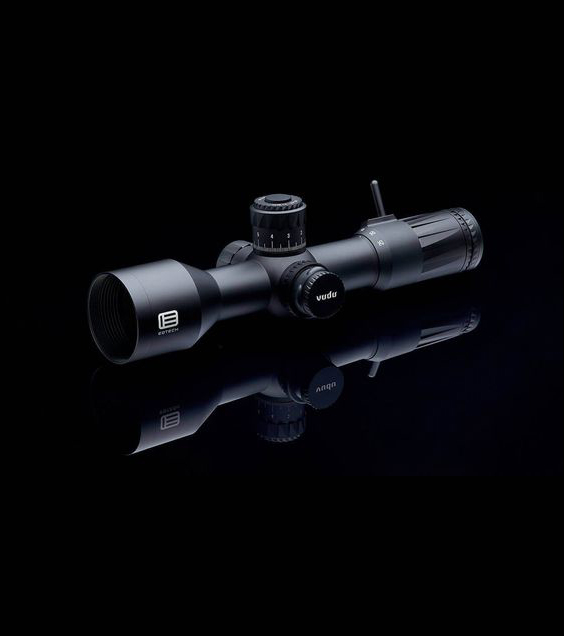Understanding Creatine: Benefits, Side Effects, and Differences Between Creatine and Super Creatine

Summary
Creatine is a naturally occurring compound found in the body that has been extensively studied for its potential benefits for athletes and active individuals, including increased muscle mass and strength, improved exercise performance, and faster recovery from exercise. Super creatine is a term used by some supplement companies to describe a form of creatine that has been modified or combined with other ingredients to enhance its effects, but there is no scientific evidence to support its use. It's important to be cautious when using any form of supplement and to do your research to ensure that you're using a safe and effective product. It's also important to talk to a healthcare provider or qualified sports nutritionist before starting any supplement regimen.
Intro
If you're into fitness and bodybuilding, you've probably heard of creatine. It's a popular supplement among athletes, and for a good reason - it can help increase muscle mass, strength, and power. But have you heard of super creatine? In this article, we'll take a closer look at what it is, how it works, and whether it's worth adding to your supplement stack.
What is Super Creatine?
Super creatine is a relatively new form of creatine that's gaining popularity in the fitness community. It's also known as creatine nitrate or creatine nitrate hydrate. Like traditional creatine, super creatine is a naturally occurring compound found in our muscles and other tissues. It's involved in the production of ATP, which is the primary energy source for our cells.
So what makes super creatine different from regular creatine? The main difference is that super creatine is bound to a nitrate molecule. Nitrate is a compound found in many foods, including leafy greens, beets, and other vegetables. When we consume nitrate, our body converts it into nitric oxide, a molecule that's important for vasodilation - the widening of blood vessels.
By binding creatine to nitrate, super creatine may provide some additional benefits compared to regular creatine. Some manufacturers claim that super creatine is more soluble and easier to absorb than traditional creatine. It may also help increase blood flow and nutrient delivery to the muscles, which could lead to better performance and recovery.
How Does Super Creatine Work?
Like traditional creatine, super creatine works by increasing the amount of phosphocreatine in our muscles. Phosphocreatine is a molecule that's used to produce ATP during high-intensity exercise, such as weightlifting or sprinting. By increasing the amount of phosphocreatine in our muscles, super creatine may help us perform better during these types of activities.
But super creatine may also have some additional benefits. By binding creatine to nitrate, it may help increase blood flow and oxygen delivery to the muscles. This could help improve endurance and delay fatigue during prolonged exercise.
There's also some evidence to suggest that nitrate itself may have some performance-enhancing effects. One study found that consuming nitrate-rich beetroot juice improved time to exhaustion during high-intensity exercise. Another study found that nitrate supplementation improved cycling time trial performance.
Overall, it's still unclear exactly how super creatine works and whether it's more effective than traditional creatine. More research is needed to fully understand its mechanisms of action and potential benefits.
Is Super Creatine Worth Taking?
If you're already taking traditional creatine and seeing good results, you may be wondering if it's worth adding super creatine to your supplement stack. The short answer is that it depends.
While there's some evidence to suggest that super creatine may have some additional benefits compared to regular creatine, the research is still limited. More studies are needed to fully understand its effects on performance and muscle growth.
Additionally, super creatine is often more expensive than traditional creatine. If you're on a budget, sticking with regular creatine may be a better option.
That said, if you're looking for a new supplement to try and are curious about super creatine, there's no harm in giving it a shot. Just be sure to follow the manufacturer's instructions and consult with your healthcare provider if you have any concerns or medical conditions.
What's the best type of creatine?
When it comes to choosing the best type of creatine, there are many options to consider, each with its own advantages and disadvantages. Here are some of the most popular types of creatine and their potential benefits:
Creatine Monohydrate: This is the most researched and commonly used form of creatine. It's affordable, effective, and easy to find. Many studies have shown that creatine monohydrate can help increase muscle mass, strength, and power, and improve exercise performance. It's also well-tolerated by most people and has few side effects.
Creatine Ethyl Ester: This is a form of creatine that's been modified to improve absorption. It's often marketed as a more efficient and effective form of creatine than monohydrate, but there's limited research to support these claims. Some studies have shown that creatine ethyl ester may be less effective than monohydrate and may cause gastrointestinal issues.
Creatine Hydrochloride: This is another form of creatine that's been modified for improved absorption. It's also marketed as a more concentrated form of creatine that requires smaller doses. However, there's limited research on its effectiveness and safety compared to monohydrate.
Buffered Creatine: This is a form of creatine that's been buffered or neutralized to reduce stomach discomfort and improve absorption. It's often marketed as a more gentle and effective form of creatine than monohydrate, but there's limited research to support these claims.
Creatine Magnesium Chelate: This is a form of creatine that's bound to magnesium. It's marketed as a more bioavailable and effective form of creatine than monohydrate. Some studies have shown that creatine magnesium chelate may improve exercise performance and reduce muscle damage, but more research is needed.
Ultimately, the best type of creatine for you depends on your individual goals, preferences, and tolerance. Creatine monohydrate is a safe and effective choice for most people, and it's often recommended as the first choice for beginners. However, if you have specific needs or concerns, you may want to consult with a healthcare provider or sports nutritionist to find the best type of creatine for you.
Super Creatine Side Effects
Super creatine is a term used by some supplement companies to describe a form of creatine that has been modified or combined with other ingredients to enhance its effects. However, there is no single definition or standard for what constitutes "super creatine," and the potential side effects can vary depending on the specific product and ingredients used.
That said, the most common side effects associated with creatine supplementation in general include:
Gastrointestinal issues: Creatine can cause stomach upset, diarrhea, and nausea in some people, particularly when taken in large doses or on an empty stomach.
Water retention: Creatine can cause the body to retain water, which can lead to weight gain, bloating, and a puffy appearance.
Muscle cramps and strains: Creatine may increase muscle strength and power, but it can also cause muscle cramps, strains, and other injuries if not used properly or in conjunction with a balanced exercise program.
Kidney damage: Some studies have suggested that long-term, high-dose creatine supplementation may be associated with kidney damage, although the evidence is not conclusive.
Interference with certain medications: Creatine may interact with certain medications, such as diuretics and nonsteroidal anti-inflammatory drugs (NSAIDs), and should be used with caution in people taking these medications.
It's important to note that the above side effects are relatively rare and tend to occur only with high-dose or long-term creatine supplementation. Most people who use creatine as directed experience few, if any, side effects.
If you are considering using a super creatine supplement or any form of creatine, it's always a good idea to talk to your healthcare provider or a qualified sports nutritionist first to discuss your individual needs, goals, and potential risks. They can help you determine the best approach to creatine supplementation and monitor you for any signs of side effects.
What does super creatine do?
Super creatine is a term used by some supplement companies to describe a form of creatine that has been modified or combined with other ingredients to enhance its effects. However, there is no standard definition or scientific evidence to support the use of this term or any specific product marketed as super creatine.
That said, creatine is a naturally occurring compound found in the body that plays a key role in energy production and muscle function. It's also available as a dietary supplement in various forms, including creatine monohydrate, creatine ethyl ester, creatine hydrochloride, and others.
Creatine supplementation has been shown to have a number of potential benefits for athletes and active individuals, including:
Increased muscle mass and strength: Creatine supplementation can help increase muscle mass and strength, particularly in combination with resistance training.
Improved exercise performance: Creatine supplementation may improve exercise performance and help delay fatigue during high-intensity activities such as weightlifting, sprinting, and jumping.
Faster recovery from exercise: Creatine supplementation may help reduce muscle damage and inflammation after intense exercise, allowing for faster recovery and improved training adaptations.
Neuroprotective effects: Some studies have suggested that creatine supplementation may have neuroprotective effects and help improve cognitive function in certain populations.
Potential benefits for certain medical conditions: Creatine supplementation may have potential benefits for certain medical conditions, including muscular dystrophy, Parkinson's disease, and chronic obstructive pulmonary disease (COPD).
However, it's important to note that the benefits of creatine supplementation may vary depending on individual factors such as age, sex, training status, and dietary intake. Additionally, creatine supplementation may also be associated with certain risks and side effects, such as gastrointestinal issues, water retention, and interference with certain medications.
If you're considering using any form of creatine, it's important to talk to your healthcare provider or a qualified sports nutritionist first to discuss your individual needs, goals, and potential risks. They can help you determine the best approach to creatine supplementation and monitor you for any signs of side effects.
Super Creatine Benefits
Super creatine is a term used by some supplement companies to describe a form of creatine that has been modified or combined with other ingredients to enhance its effects. However, there is no standard definition or scientific evidence to support the use of this term or any specific product marketed as super creatine.
That said, creatine is a naturally occurring compound found in the body that plays a key role in energy production and muscle function. It's also available as a dietary supplement in various forms, including creatine monohydrate, creatine ethyl ester, creatine hydrochloride, and others.
Creatine supplementation has been extensively studied for its potential benefits for athletes and active individuals, including:
Increased muscle mass and strength: Creatine supplementation can help increase muscle mass and strength, particularly in combination with resistance training. This can help athletes and weightlifters improve their performance and reach their fitness goals faster.
Improved exercise performance: Creatine supplementation may improve exercise performance and help delay fatigue during high-intensity activities such as weightlifting, sprinting, and jumping. This can be especially beneficial for athletes who compete in sports that require short bursts of intense activity.
Faster recovery from exercise: Creatine supplementation may help reduce muscle damage and inflammation after intense exercise, allowing for faster recovery and improved training adaptations. This can help athletes train more frequently and with greater intensity.
Neuroprotective effects: Some studies have suggested that creatine supplementation may have neuroprotective effects and help improve cognitive function in certain populations. This includes people with neurological disorders such as Parkinson's disease and traumatic brain injury.
Potential benefits for certain medical conditions: Creatine supplementation may have potential benefits for certain medical conditions, including muscular dystrophy, fibromyalgia, and chronic obstructive pulmonary disease (COPD).
It's important to note that the benefits of creatine supplementation may vary depending on individual factors such as age, sex, training status, and dietary intake. Additionally, creatine supplementation may also be associated with certain risks and side effects, such as gastrointestinal issues, water retention, and interference with certain medications.
If you're considering using any form of creatine, it's important to talk to your healthcare provider or a qualified sports nutritionist first to discuss your individual needs, goals, and potential risks. They can help you determine the best approach to creatine supplementation and monitor you for any signs of side effects.
Creatine vs Super Creatine
Creatine and super creatine are both dietary supplements that are commonly used by athletes and bodybuilders to enhance their performance and muscle growth. However, there are some differences between the two.
Creatine is a naturally occurring compound found in the body that plays a key role in energy production and muscle function. It's also available as a dietary supplement in various forms, including creatine monohydrate, creatine ethyl ester, creatine hydrochloride, and others. Creatine supplementation has been extensively studied and has been shown to have several potential benefits, including increased muscle mass and strength, improved exercise performance, faster recovery from exercise, neuroprotective effects, and potential benefits for certain medical conditions.
Super creatine, on the other hand, is a term used by some supplement companies to describe a form of creatine that has been modified or combined with other ingredients to enhance its effects. However, there is no standard definition or scientific evidence to support the use of this term or any specific product marketed as super creatine.
While creatine has been extensively studied and has a well-established track record of benefits and safety, the same cannot be said for super creatine or other creatine supplements that have not been studied or validated by scientific research. Therefore, it's important to be cautious when using any form of supplement and to do your research to ensure that you're using a safe and effective product.
In summary, while creatine and super creatine are both dietary supplements that can potentially enhance performance and muscle growth, creatine has a well-established track record of benefits and safety, while super creatine is a term used by some supplement companies that has not been validated by scientific research.
Related Post
Subscribe to our weekly newsletter!
Get coupons from your favorite retailers sent to your inbox at the beginning of every week.
You can cancel anytime.







Comment
leave comment